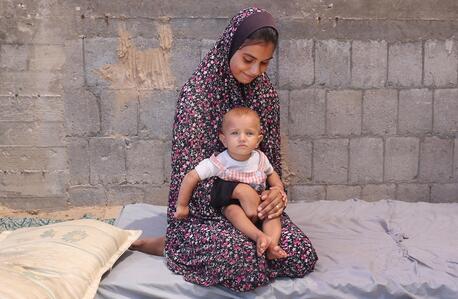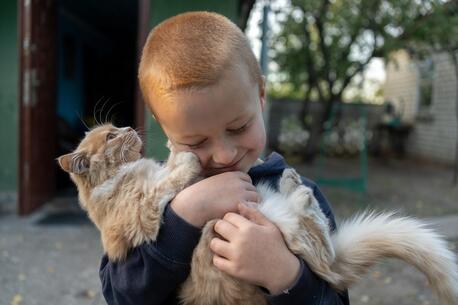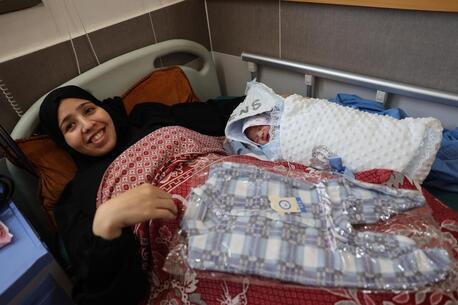
The Resilience of Mothers in the Gaza Strip
UNICEF is distributing baby clothes and infant supplies to newborns and their mothers in Gaza.
Against all odds, mothers try to give their babies a healthy start in the middle of the war in Gaza
Bringing a baby into the world is always an intense emotional experience, but for new mothers in Gaza, the joy of holding their infant in their arms for the first time is mixed with the fear and uncertainty that come from giving birth in an active war zone.
The bombs have been falling for nine months now as babies continue to be born in Gaza, and their mothers are doing all they can to see that they are safe and healthy. To help meet their needs, UNICEF is distributing baby clothes and essential infant supplies to new moms like Noura, who welcomed her firstborn, a baby boy named Majd, in April.
"Prices are very high; I am extremely grateful to have received these clothes. I tried to buy some, but the prices were prohibitively expensive," Noura said. "I hope the war ends so I don't have to feel anxious about my son's safety."
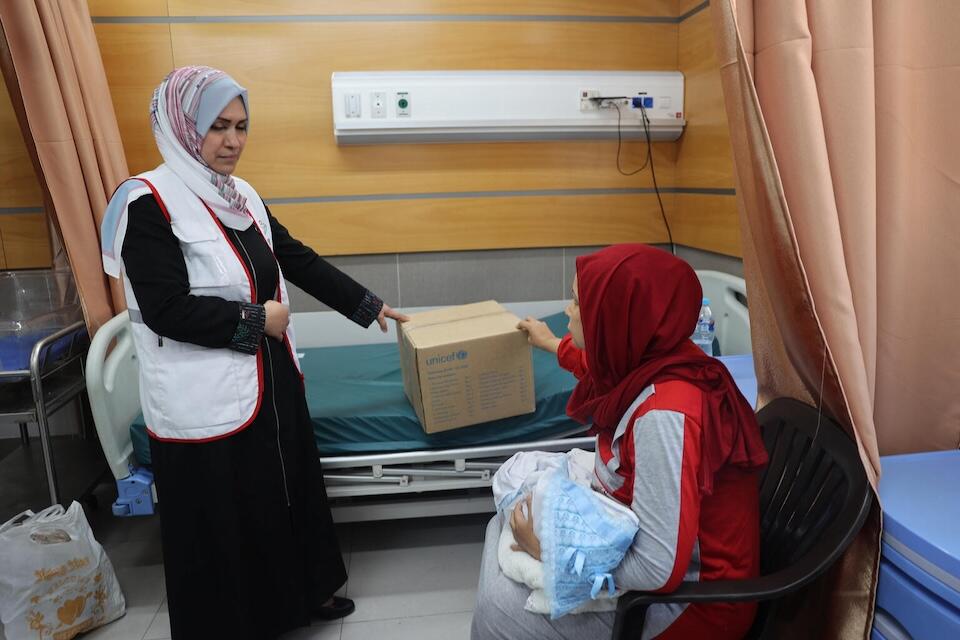
Widad was excited to receive new clothes for her little boy, Mahmoud. "Clothes are unavailable in the market. I got a few pieces from my neighbor, “ Widad said, "I am truly happy that Mahmoud now has new and beautiful clothes. It's the first thing that has made me happy in a long time.”
I am truly happy that Mahmoud now has new and beautiful clothes. It's the first thing that has made me happy in a long time. — Widad
Widad said that her pregnancy was very difficult due to the lack of food and hygiene. “I was constantly sick,” she said, "I did not expect to give birth safely due to the immense psychological stress and fear; I was afraid all the time that I might have a miscarriage."
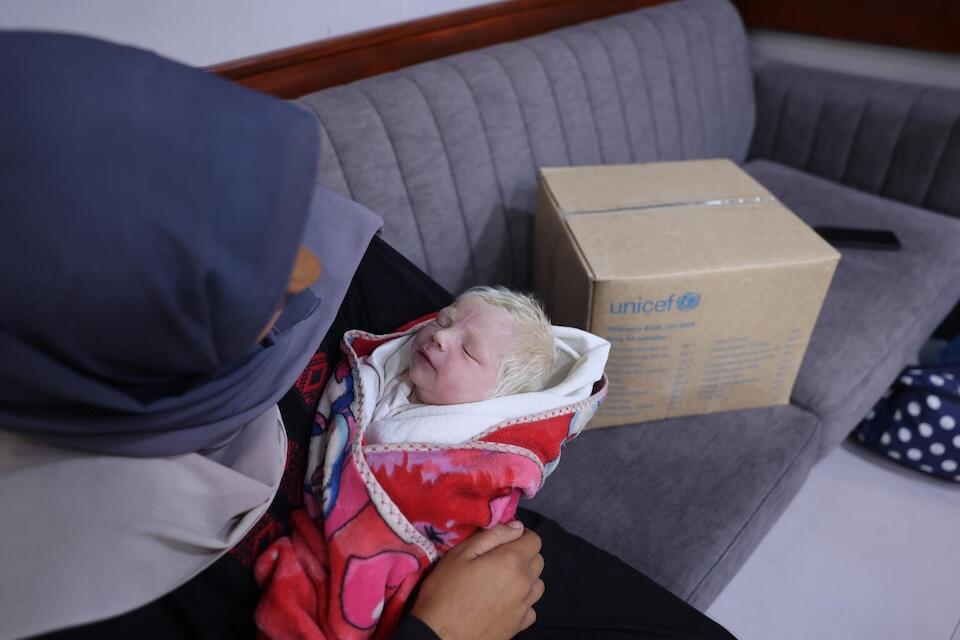
Dareen received a box from UNICEF after her son Khaled was born. "I managed to gather a few pieces of clothing for my child from the surrounding tents, and I'm very happy to have received clothes for Khaled because I really didn't know what I would do otherwise," she said.
Dareen was displaced from northern Gaza Strip while she was pregnant. This affected her health and made her pregnancy difficult.
"The situation is extremely difficult in the tents, especially with a newborn. It's exhausting to sleep on the ground." Dareen said, "During my pregnancy, I suffered from constant body pain due to stress, fear, and sleeping on the ground."
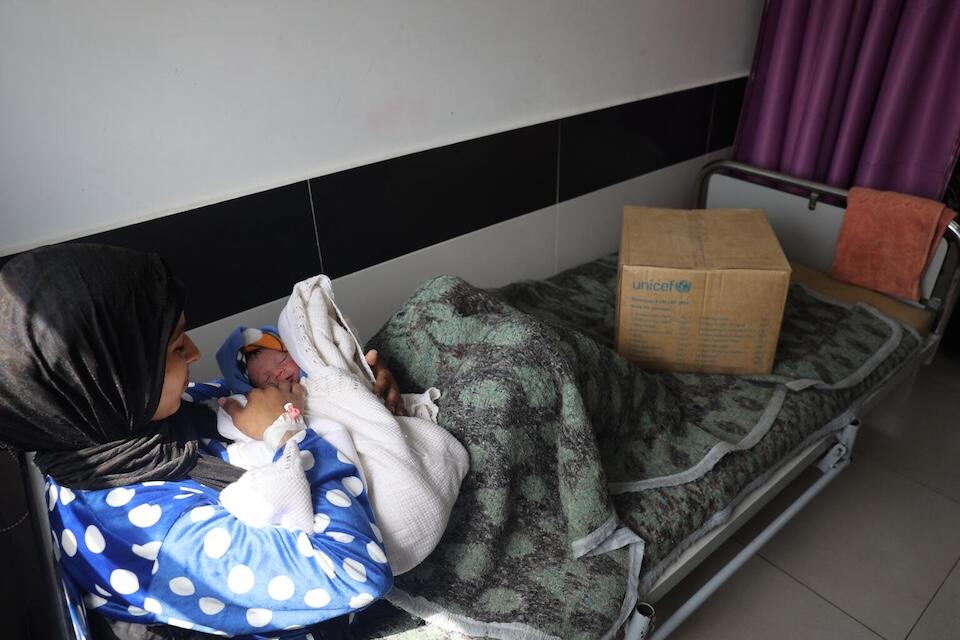
"These clothes were a gift; I was just thinking about where I could get him clothes and where I would get his diapers," said Qamar, cradling her baby son, Fahd. "These items are the first things that have made me happy in seven months and have given me a sense of hope that there is still some good in the world.”
These items are the first things that have made me happy in seven months and have given me a sense of hope that there is still some good in the world. — Qamar
"I've been displaced to the south for a month now, and the situation in the north was very difficult," Qamar said. "I used to eat one small meal a day, and sometimes one meal every three days. Because of that, my child was born weighing only one and a half kilograms because there wasn't enough food available.”
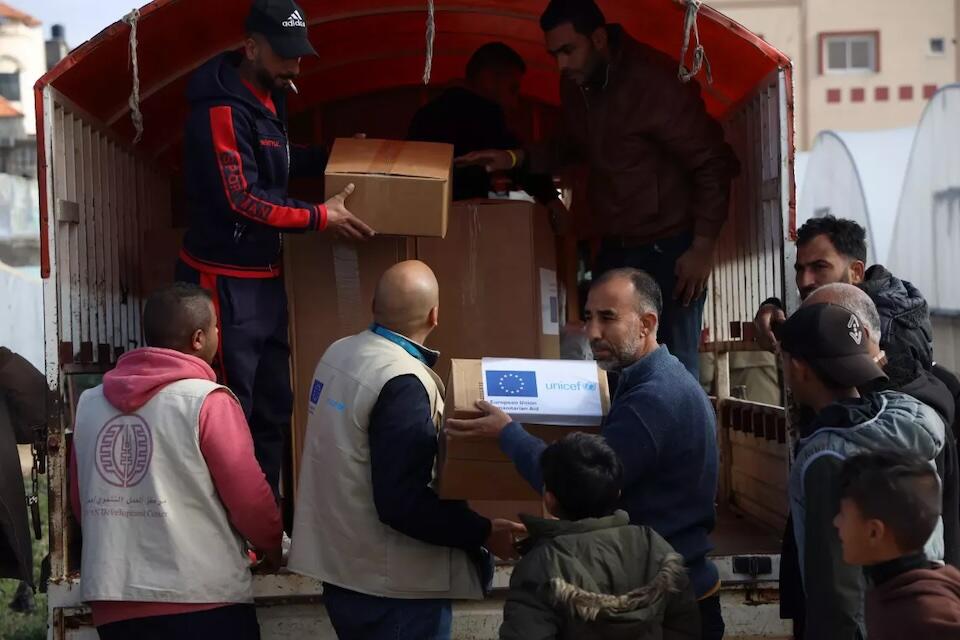
UNICEF, with partners, has distributed 1,000 baby clothing kits and essential supplies to new mothers and babies at Alwada Hospital in Nussirat, centrally located in the Gaza Strip, along with other maternity hospitals in Dair Albalah and Rafah.
These efforts, which have brought hope and a sense of normalcy to mothers, were made possible with the support from the Governments of Germany, Norway, Sweden and Switzerland, European Union Humanitarian Aid (ECHO), and Yousef Al-Bashiti and Sons Company in Jordan.
UNICEF is working with partners to reach babies, children and their mothers with the nutrition, health care, safe water and sanitation they need to survive and thrive. Your contribution will make a difference. Please donate today.
Learn more about UNICEF's humanitarian response in Gaza.
HOW TO HELP
There are many ways to make a difference
War, famine, poverty, natural disasters — threats to the world's children keep coming. But UNICEF won't stop working to keep children healthy and safe.
UNICEF works in over 190 countries and territories — more places than any other children's organization. UNICEF has the world's largest humanitarian warehouse and, when disaster strikes, can get supplies almost anywhere within 72 hours. Constantly innovating, always advocating for a better world for children, UNICEF works to ensure that every child can grow up healthy, educated, protected and respected.
Would you like to help give all children the opportunity to reach their full potential? There are many ways to get involved.




